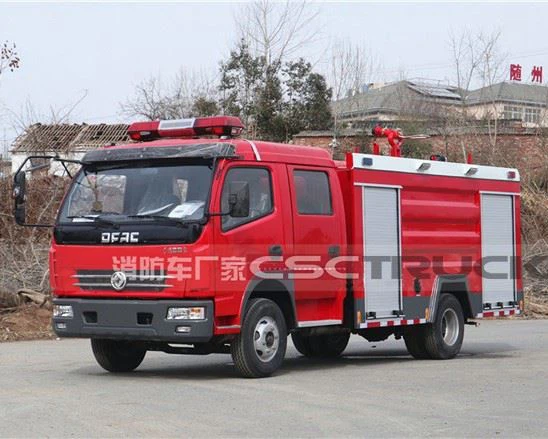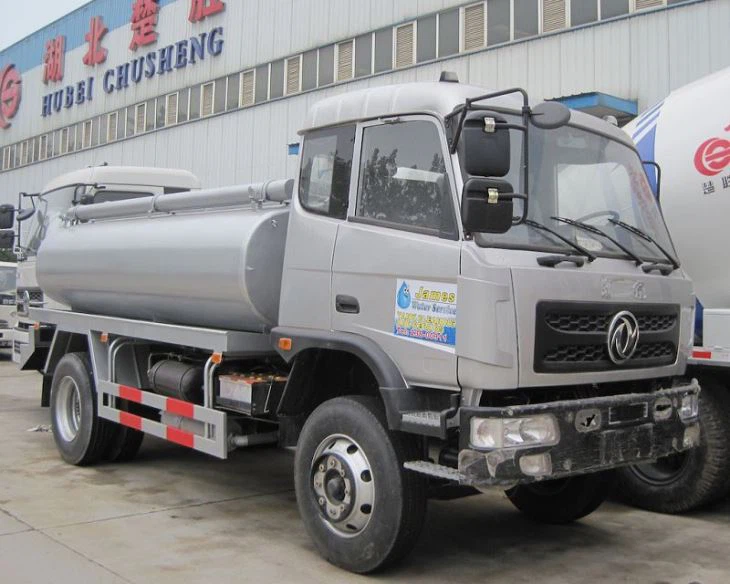Custom Garbage Truck: Enhancing Waste Management Solutions

The evolution of waste management has opened avenues for custom garbage trucks to revolutionize how municipalities and businesses handle their refuse. In this article, we delve deep into what makes custom garbage trucks essential for modern waste collection, including features, design considerations, and real-world examples.
Introduction to Custom Garbage Trucks
Waste management plays a pivotal role in maintaining public health and environmental sustainability. Custom garbage trucks are designed to meet specific needs that standard trucks may not fulfill. These specialized vehicles can be tailored for various tasks, from residential pick-up to heavy-duty industrial waste management. Understanding the importance of customization in garbage trucks can help municipalities and businesses streamline their waste management processes, enhance efficiency, and reduce costs.
Understanding the Concept of Custom Garbage Trucks
What are Custom Garbage Trucks?
Custom garbage trucks are vehicles specifically designed and manufactured to meet the unique requirements of different waste management operations. These trucks can be equipped with various features that enhance their functionality, efficiency, and operational adaptability.
Benefits of Customization
- Increased Efficiency: Custom features can significantly improve operational efficiency, such as automated lifting systems that reduce the time needed for collection.
- Cost-Effective: Tailored designs can lead to reduced maintenance costs and longer service life.
- Enhanced Safety: Custom designs can integrate features such as better visibility, sensors, and alarms to improve operational safety for drivers and pedestrians.
- Environmental Impact: Customized trucks can incorporate environmentally friendly technologies, helping cities meet green initiatives.
Key Features of Custom Garbage Trucks
Types of Custom Garbage Trucks
Custom garbage trucks can be designed for various applications, including:
| Type | Description | Ideal Use Case |
|---|---|---|
| Rear-Loader | Standard design with loading done from the back. | Residential and commercial waste collection. |
| Side-Loader | Loading done from the side, often with automated systems. | High-density urban areas. |
| Front-Loader | Loading done from the front, frequently used for dumpsters. | Industrial and large commercial settings. |
| Compactor Truck | Trucks equipped with compacting capability to reduce waste volume. | Urban disposal and landfill operations. |
Specialized Equipment
Various attachments and equipment can be included in custom garbage trucks:
- Automated Lifters: Reduce manual labor and improve collection speed.
- Cameras and Sensors: Improve safety and monitoring capabilities.
- Compaction Systems: Allow for more waste collection by reducing size.
- Environmentally Friendly Technologies: Such as hybrid engines or electric systems for lower emissions.
Design Considerations for Custom Garbage Trucks
Understanding User Requirements
The first step in designing a custom garbage truck is understanding the specific requirements of the end user—municipalities, commercial businesses, or waste management companies. Key considerations include:
- Capacity: The truck must be designed to handle expected waste volume.
- Terrain: Trucks for urban areas might need different specifications compared to those meant for rural regions.
- Operational Environment: Will it be used in residential areas, commercial zones, or industrial sites?

Compliance with Regulations
Municipalities must ensure that their custom garbage trucks conform to local, state, and federal regulations. This may include emissions standards, safety requirements, and operational permits.
Budget Considerations
Custom garbage trucks often involve higher initial costs but can lead to savings over time through efficiency and lower maintenance costs. It’s essential to assess the total cost of ownership (TCO) rather than just the purchase price.
Choosing the Right Manufacturer for Custom Garbage Trucks
Evaluating Potential Manufacturers
Not all manufacturers have experience in producing custom garbage trucks. When selecting a manufacturer, consider:
- Experience: Look for companies with a proven track record in custom waste management solutions.
- Customer Reviews: Research feedback to ensure reliability and quality.
- Warranty and Support: Good warranty policies and customer support are vital for ongoing maintenance.
Custom Truck Production Process
The production of custom garbage trucks typically involves several stages, including:
- Design Phase: Finalizing specifications based on user needs.
- Prototyping: Creating a model for testing and evaluation.
- Manufacturing: Building the truck using quality materials and craftsmanship.
- Testing: Ensuring all systems work effectively and are compliant.
Real-World Examples of Custom Garbage Trucks in Action
Case Study: City of Los Angeles
The City of Los Angeles implemented custom side-loading garbage trucks equipped with automated lifters. This technology not only reduced collection time per household but also lowered workers’ compensation claims by minimizing manual handling injuries.
Case Study: Waste Management Inc.

Waste Management Inc. adopted electric-powered garbage trucks in select urban areas. This customization has aided their efforts in reducing carbon emissions while maintaining a reliable waste collection service.
Best Practices for Operating Custom Garbage Trucks
Training Operators
It’s crucial to provide thorough training for drivers and operators. This training should cover vehicle operation, maintenance procedures, and safety protocols, especially for those working with specialized equipment.
Regular Maintenance and Inspections
Like all vehicles, custom garbage trucks require regular maintenance. Scheduling inspections and routine servicing can prolong the life of the truck and ensure optimal performance.
Utilizing Technology for Fleet Management
Investing in fleet management software can help track truck locations, monitor waste collection schedules, and analyze performance metrics, ultimately improving efficiency.
Environmental Considerations for Custom Garbage Trucks
Emissions Control Technologies
Modern custom garbage trucks can be fitted with emissions control systems to ensure compliance with environmental standards. Technologies may include:
- Catalytic Converters: To reduce harmful emissions.
- Diesel Particulate Filters: To minimize particulate matter output.
Using Alternative Fuels
Many organizations are exploring the use of alternative fuels such as compressed natural gas (CNG) or biofuels to reduce reliance on traditional diesel fuel.
FAQs About Custom Garbage Trucks
1. How much does a custom garbage truck cost?
The cost of a custom garbage truck varies significantly based on specifications, features, and manufacturers. Generally, prices range from $200,000 to $500,000 or more for highly specialized models.
2. How long does it take to manufacture a custom garbage truck?
The manufacturing process can take anywhere from a few months to over a year, depending on complexity and the manufacturer’s production schedule.
3. What are the common maintenance issues for custom garbage trucks?
Common issues may include hydraulic system maintenance, wear and tear on lifting mechanisms, and electrical system failures. Regular inspections can help catch these issues early.
4. Can I retrofit an existing garbage truck with custom features?

Yes, many manufacturers offer retrofitting services for existing trucks to add features like automated lifting systems or emissions control technologies.
5. What should I consider when choosing a truck type?
Consider factors such as the type of waste you collect, the geography of your service area, expected volume, and whether manual or automated loading suits your operations best.
6. Are custom garbage trucks better for the environment?
Custom garbage trucks can be designed with specific environmental considerations, such as low emissions and fuel efficiency, making them potentially better for the environment than standard trucks.
